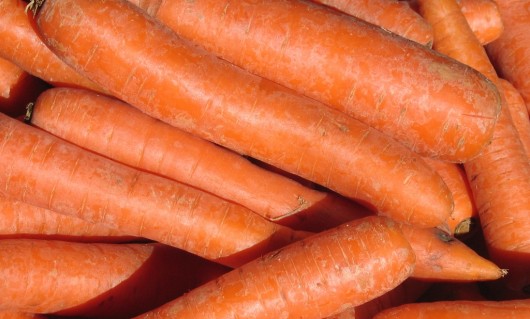Which Fruit Has The Most Carotene-a (Alpha-Carotene)?
What is Carotene-a?
As a precursor to vitamin A, carotene is a necessary part of the diet. The most commonly talked about and studied is beta-carotene, because it readily converts to vitamin A in the body. Less well known is carotene-a, which is also known as alpha-carotene. All carotenes are pigments that allow more efficient photosynthesis in plants and protect against them against free radicals.
Carotene-a In Our Body And Why Is It Good For Our Health?
Since it only contains one retinyl group, versus beta-carotene’s two, conversion of carotene-a to vitamin A is only half as efficient. However, the benefits of this form are not limited to vitamin production. It is also a potent antioxidant, scavenging the by-products of metabolism and removes them from the body. It is also important in promoting communication between cells. Through both of these mechanisms, many researchers believe that alpha-carotene in the diet will reduce the risk of many types of cancer, autoimmune disorders, and yeast infections.
Carotene-a is a fat soluble micro-nutrient, meaning that it is stored in body fat and requires fat for proper absorption. Low-fat diets and certain conditions that inhibit fat absorption can prevent absorption of carotenes. Certain medicines used to treat high cholesterol and margarines containing plant sterols will inhibit absorption. No health consequences are linked to a deficiency in carotene-a, but it is found in most of the same foods containing beta-carotene. A lack of sufficient carotenes in general may lead to vitamin A deficiency. Lack of sufficient levels of vitamin A will depress the immune system and lead to blindness.
The Institute of Medicine has not found any toxicity issues associated with carotene-A or carotene intake in general. Vitamin A can be toxic in high amounts, but the body will not continue to manufacture it from carotenes when sufficient amounts are already present.
Top Fruits For Carotene-a Content
The amounts of Vitamin A are given for 100g of each fruit.
1 Carrot 3427 mcg
2 Pumpkin 515 mcg
3 Tangerine 101 mcg
4 Tomato 101 mcg
5 Banana 25 mcg
6 Apricot 19 mcg
7 Mango 17 mcg
8 Raspberry 16 mcg
9 Mulberry 12 mcg
10 Orange 11 mcg
11 Durian 6 mcg
12 Kiwi 4 mcg
13 Cranberry 1 mcg
14 Lemon 1 mcg
15 Grape 1 mcg
16 Mangosteen 1 mcg
17 Cucumber 0 mcg
18 Blueberry 0 mcg
19 Plum 0 mcg
20 Watermelon 0 mcg
21 Lychee 0 mcg
22 Cherry (sweet) 0 mcg
23 Papaya 0 mcg
24 Jackfruit 0 mcg
25 Peach 0 mcg
26 Strawberry 0 mcg
27 Pineapple 0 mcg
28 Redcurrant 0 mcg
29 Apple 0 mcg
30 Melon (Cantaloupe) 0 mcg
31 Pear 0 mcg
32 Passion Fruit 0 mcg
33 Guava 0 mcg
34 Blackberry 0 mcg
35 Pomegranate 0 mcg
36 Fig 0 mcg
37 Elderberry 0 mcg
38 Grapefruit 0 mcg
39 Lime 0 mcg
40 Gooseberry 0 mcg
41 Blackcurrant 0 mcg
